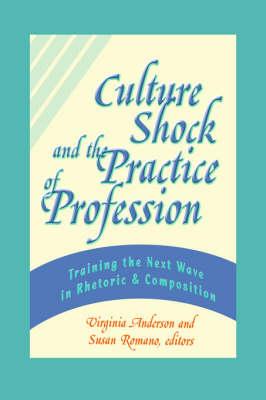Overview
This book steps into the long-standing debate about how doctoral programs should prepare students for the profession. The contributors explore both the conceptual and practical specifics of a refocused training. They build a compelling argument that endowing students with a stable identity as rhetoric/composition professionals is less crucial than preparing them to adopt myriad and shifting professional personas that position them for active rhetorical practice.
Full Product Details
Author: Virginia Anderson , Susan Romano
Publisher: Hampton Press
Imprint: Hampton Press
Edition: New ed.
Weight: 0.333kg
ISBN: 9781572735781
ISBN 10: 1572735783
Pages: 352
Publication Date: 30 July 2006
Audience:
College/higher education
,
Professional and scholarly
,
Postgraduate, Research & Scholarly
,
Professional & Vocational
Format: Hardback
Publisher's Status: Active
Availability: Manufactured on demand 
We will order this item for you from a manufactured on demand supplier.
Table of Contents
Introduction, Virginia Anderson and Susan Romano. Being (Out) There: What We Got And How It Served. Learning Discipline Emotional Labor, Disciplinary Grammar, and Pragmatic Education, Lisa Langstraat and julie Lindquist. An Experimental PhD Program: Problems and Possibilities, Ann Green and Alexander Reid. Start State, End State: Trajectories of Graduate Study for and by Technical Communicators, Brenda Orbell and Denise Tillery. Changing Praxis/Changing Students; Online Graduate Education, Patricia Webb, Forty-Minute Drive to the Main 'Campus' Teaching For and From Rhetoric and Compositions Invisible Borderland, John Tassonl, Oh, No, They Can t Take That Away From Me: Reflectios on Academic Freedom and the Status of Composition, Scott Stevens. Models And Frameworks For Change, The WPA Apprenticeship. Learning to Be Good Citizens Of/For Our Institutions, Jennifer Morrison and Tim Peeples. Beyond Winging It: The Place of Writing Program Administration in Rhetoric and Composition Graduate Programs, Shirley Rose and Irwin Weiser, Preparing Future Faculty Programs: The Place of Practice in Doctoral Work, Debra Jacobs and Greg Gilberson. Inviting Students into Composition Studies With a New Instructional Genre, Sheryl Fontaine and Susan Hunter. From Graduate Student to Writing Administrator: Substantive Training for a Sustainable Future, Julie A, Eckerle, Karen Rowan, and Shevaun Watson. It s a Two-Way Street: White Faculty Mentoring African-American Graduate Students in Composition and Rhetoric, Terry, Carter, Christy Friend, Rose Metts, and Nancy Thompson, Isolation, Adoption, Diffusion: Mapping the Relationship Between Technology and Graduate Programs in Rhetoric and Composition, Collin Gifford Brooks and Paul Bender. Visions Light And Dark. At Work in the Field, Danlka M, Brown and Thomas P. Miller. What Schools of Education Can Offer the Teaching of Writing, Charles Bazerman, Danielle Fouquette, Chris Johnston, Francien Rohrbacher, and Rene Agustin De los Santos. New Scripts for Rhetorical Education: Alternative Learning Environments and the Master/Apprentice Model, James Sosnoski and Beth Burmester. Administrating Ourselves to Death. Historiography and the Ethics of WPA Narratives, Dana Harrington and Heather Shearer Articulation, Liminal Space, and the Place of Rhetoric and Composition in English: A Case for the Hybrid Graduate Student, Michael Moghtader. Afterword, Lester Falgley. Author Index. Subject Index.
Reviews
Author Information
Tab Content 6
Author Website:
Customer Reviews
Recent Reviews
No review item found!
Add your own review!
Countries Available
All regions
|




